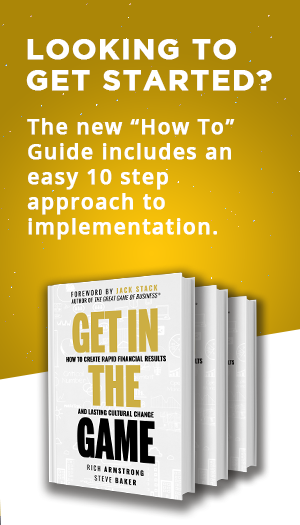Inspired by Rich Armstrong & Steve Baker's new book, Get in the Game: How to Create Rapid Financial Results and Lasting Cultural Change. For nearly forty years, Springfield Remanufacturing Corporation (SRC) and subsidiary The Great Game of Business, Inc. have been known as the “open-book people.” The term open-book management (OBM) was coined by John Case in reference to SRC's "maverick" management practice in an Inc. Magazine article back in the 1980s, and the name stuck. With SRC and Great Game’s approach to OBM, Jack Stack, our CEO and founder, was even dubbed the “Father of Open-Book Management” by Inc. But if you ask Jack what he thinks of OBM, he’ll tell you that opening the books is only part of the story... financial transparency is worthless without education, accountability, and reward. The only way to see your people AND your organization grow and transform is by teaching employees how business works.
Read More
Surveys show that employees don’t usually participate in The Great Game of Business® until they feel comfortable with the numbers and with the whole idea of the GGOB. Fortunately, there are plenty of other ways to quickly build a sense of excitement and a feeling of empowerment within your organization. What is Employee Empowerment? It relies on a single core principle: giving employees the right resources, whether it's financial literacy education, hands-on training, or new tools, to make accurate decisions on behalf of the company. Benefits of Employee Empowerment Improved workplace culture. Heightened productivity. Better quality work. Organization-wide engagement. Here are 5 tips that will get your employees engaged and empowered:
Read More
Inspired by Rich Armstrong & Steve Baker's book, Get in the Game: How to Create Rapid Financial Results and Lasting Cultural Change. The original Critical Number™ for Jack Stack and the people of SRC was obvious. With a debt to equity ratio of 89:1, they needed to make the bank loan payment. If they didn’t do that, nothing else mattered— their jobs would be gone. Debt was their weakness and they needed to drive it out of their business. Jack used that one common goal to rally people, get their buy-in and educate them. Not only why it was critical, but how they could influence it. Armed with a common goal people could understand and buy into, Jack could teach debt to equity, along with all the related financial education in their weekly Huddles. And after a year and fifty-two lessons, you can be sure they learned it.
Read More
Improve Your Year-End Outlook—Through Data-driven, High-Involvement Planning & Strategy Development Every business out there has been impacted by economic conditions in some way. While some have been forced to shut their doors, others have seen demand spike for their products or services. The devastating speed with which disruption has hit forced companies to make dramatic adjustments to cope and survive—or even to keep up and thrive. But short-term thinking will only get you so far. It’s now time to adjust your sights and start to look further out. It’s time to move past the uncertainty of today and begin thinking about what the marketplace is telling you about what your organization faces tomorrow.
Read More
Few companies have exploded onto the scene the way Netflix did in the late 1990s. Perhaps more impressively, the company beat back an 800‐pound gorilla called Blockbuster Video on its way to radically changing how many of us now consume TV shows and movies. What makes Netflix’s success interesting is how it managed to embrace several massive changes in its business model as it outmaneuvered its much larger rival. The first of those big shifts was when co‐founder Reed Hastings decided that Netflix would begin offering monthly subscription plans to its customers where they could rent as many movies as they liked for a flat fee. Even more radical was the notion that it would also eliminate late fees—which made up a large percentage of Blockbuster’s revenues. But pivoting like that promised to not only disrupt Blockbuster—it might also rattle Netflix’s employees, causing them to wonder if the new business model would work. How could they pull everyone together and get them to believe this was the best strategy moving forward?
Read More
Every day brings a confusing mix of news about the economy. It can be tough to gauge how things are trending. Just when things look like they might calm down enough for everyone to get back to business, a trade war escalates or economists decide to lower their forecasts for future growth, or most recently a pandemic hits. It's interesting that when 60 economists where surveyed by the Wall Street Journal they expect the next downturn in either 2020 or, more likely, 2021. I guess they didn't foresee the pandemic either or they might have leaned more heavily on the 2020 wager. Now that you have weathered the shock of recession caused by the pandemic, all this turmoil should serve as a kind of alarm—a red alert to take action. If times are good in your business right now or in the foreseeable future, you should be putting plans in place so that you’ll be able to handle the next inevitable downturn to come, which historically happens about every 10 years or so. That’s where playing The Great Game of Business® can help. Here are four tips on how to prepare your organization to handle future turmoil:
Read More
It’s not always easy to work in the so-called “gig economy,” where millions of Americans find ways to earn money on one-off assignments. Prime examples are the folks who spend their time picking up extra fares in their personal cars driving for gig economy stars like Uber and Lyft. While it’s a great way to earn a few extra dollars, few (if any) of those drivers are going to make enough money to retire on. That helps explain the recent buzz around the news that the some folks who have been driving for Uber and Lyft will reportedly get the chance to buy shares of those companies prior to their IPOs (initial public offering), which are expected sometime this year. Lyft, for example, is planning to give drivers who have given at least 10,000 rides a $1,000 bonus they can keep or use to purchase shares of the stock.
Read More
A few years ago, the Wall Street Journal ran an article about a practice called “Zero-Based Budgeting,” which is basically a cost-control process that was being embraced by big-name companies such as Heinz, Kraft, and Burger King. The idea is that companies don’t roll over budgets from year to year, but they have to make a case for new spending plans each year. This philosophy wasn’t new—Texas Instruments experimented with it a few decades ago—but it seemed to gain popularity with investors interested in keeping costs under control. That was especially true when it came to the Kraft-Heinz merger. But things apparently haven’t worked out.
Read More
When companies implement The Great Game of Business, the company's leadership are often expected to get up to speed quickly. They’re asked to teach things they may not know and share information they’ve always kept close to the vest. They’re also expected to change their personal management style, often abruptly. In this situation, it shouldn’t be surprising if some managers leave and the rest feel threatened, confused or angry. Chances are they’re all asking themselves the same question: “As employees learn more about the business and take more responsibility for posting good results, then what’s my role?” Meanwhile, they're being peppered with questions from the front line: “What’s all this about, anyway? Do we really have to do this?” If your managers shrug or answer cynically, your program is over before it starts.
Read More
There’s a big elephant in the room business owners need to start looking at if they haven’t already: the looming workforce shortage. While the media seemed to focus solely on the lack of jobs in recent years, the real story that’s going to impact businesses of all kinds in the coming years is the shortage of workers caused by the constant stream of Baby Boomers leaving the workforce. But what can those businesses that are already feeling the pain do about attracting new talent? Just as importantly, how can they better engage and retain the employees they already have?
Read More

.png)

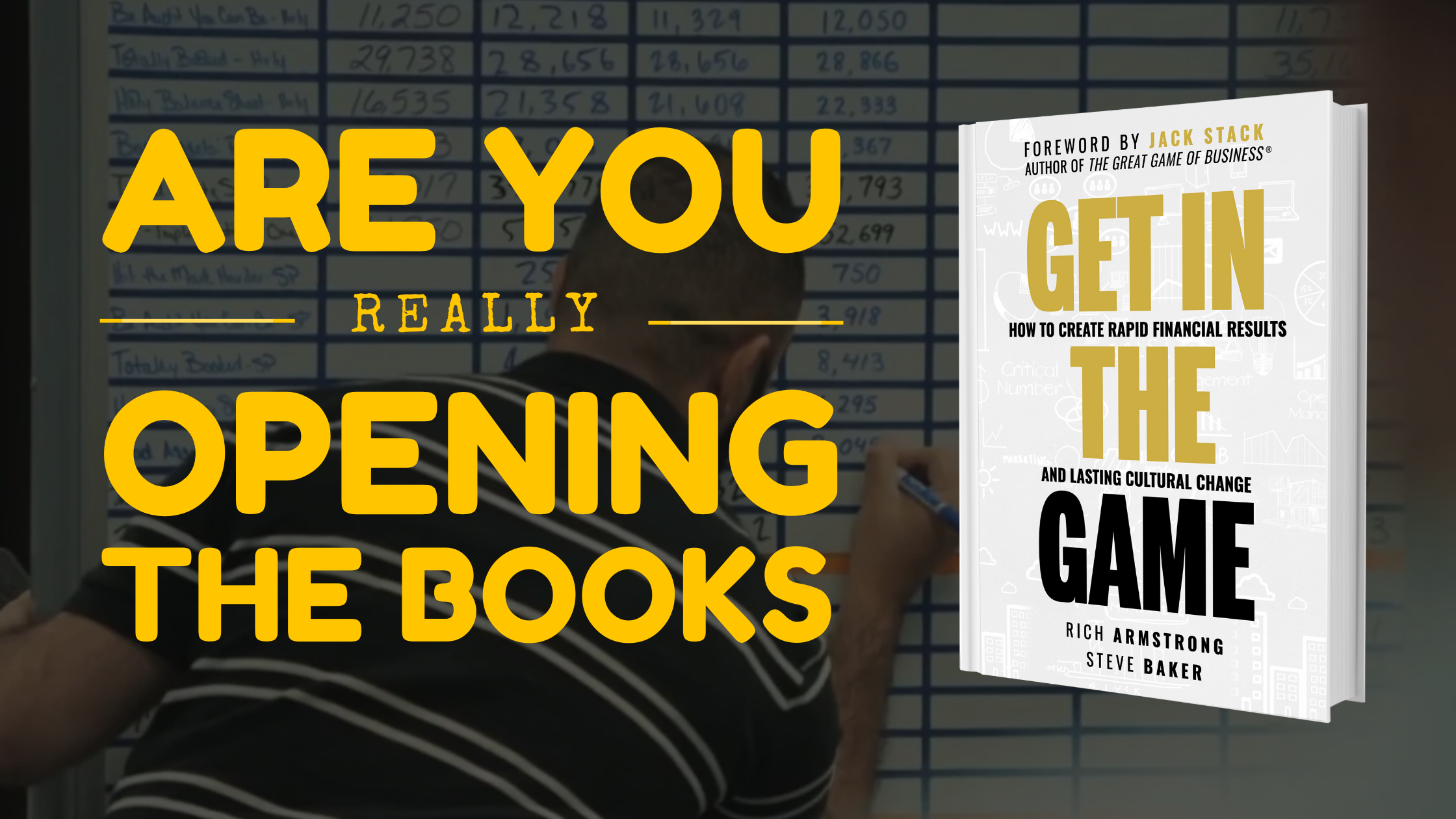
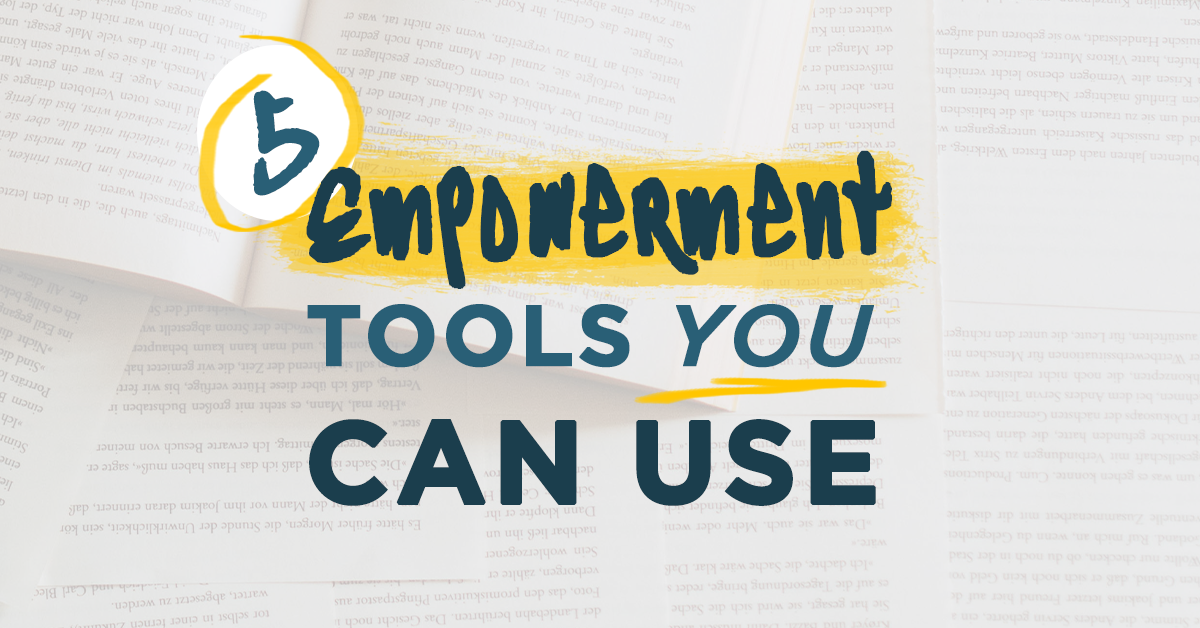

.png)
.png)
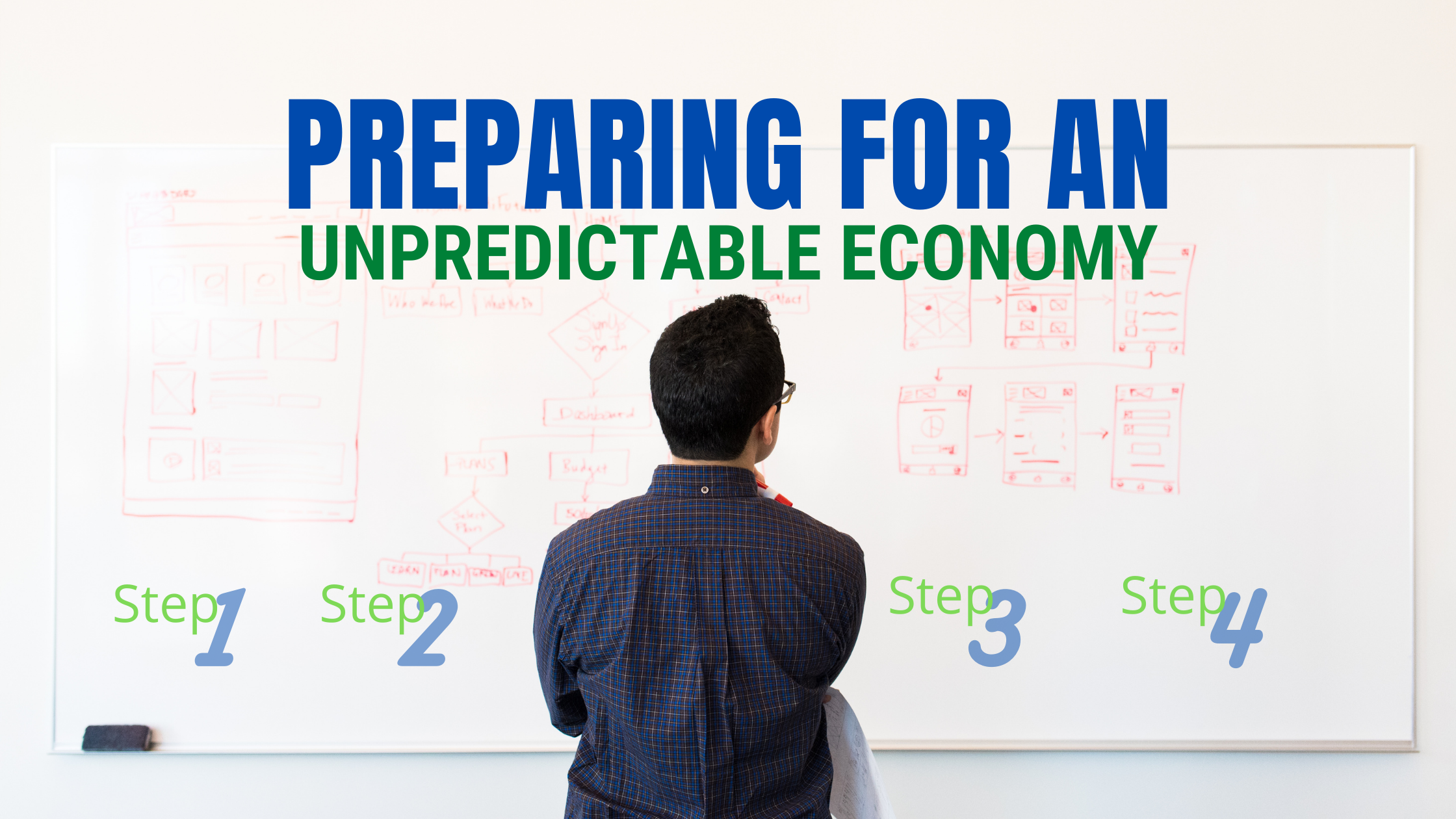



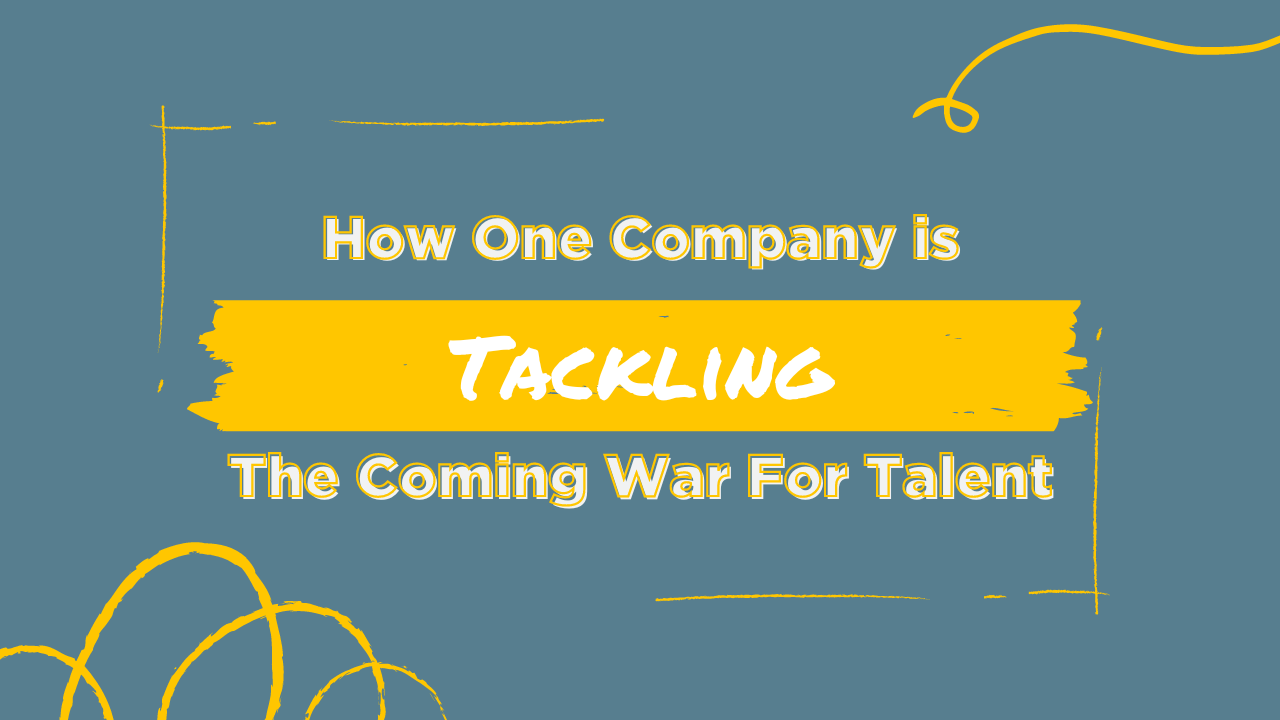




.png)




-5.png)
